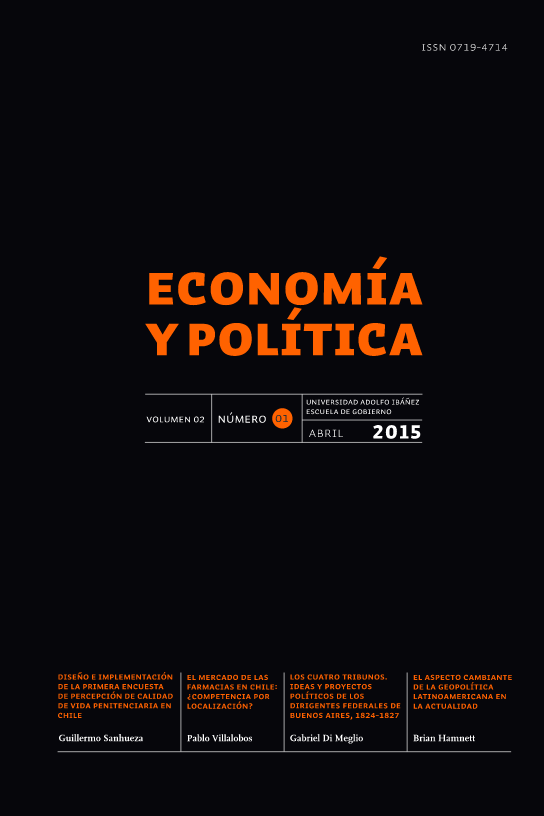Design and Implementation of the First Perception Survey Quality of Prison Life in Chile: Proposals and Challenges for the Prison System
DOI:
https://doi.org/10.15691/07194714.2015.001Keywords:
prison, Chilean Bureau of Prisons, quality of life, Chile, Human RightsAbstract
Imprisonment is imposed over an individual as a result of a severe offense against society. This severe restriction has been established as punishment not for punishment, which means that the only right that is suspended has to do with freedom of movement. A variety of international agreements has reaffirmed this principle and emphasized that prisons should respect inmates’ human dignity and promote their social reintegration. Nevertheless, serving a sentence in Chilean prisons has become a form of continuous punishment that extends far beyond the mere deprivation of liberty. Indeed, Chilean prisons have been criticized for their levels of overcrowding, lack of access to rehabilitative programs, and for their levels of mistreatment towards (and between) inmates. Despite the fact that there have been previous reports on prison conditions in Chile, they have not followed a systematic approach nor have offered a detailed description by areas of interest. As a result, there have been few evidence-based reference points for policy makers or prison administrators to improve prisons nationwide. Following a request from the Chilean Bureau of Prisons [Gendarmería de Chile, in Spanish], through its Unit for Protection and Promotion of Human Rights, the author of this article designed and implemented the First National Survey on Inmates’ Perception of Quality of Life, conducted in 2013, which surveyed 2,093 incarcerated individuals from 75 prisons nationwide; inmates were selected based on a stratified-random sampling strategy. The results show a deteriorated perception not only in terms of prison infrastructure but also regarding different abusive practices, including mistreatment by guards, inmate-on-inmate violence and lack of rehabilitative programs.


